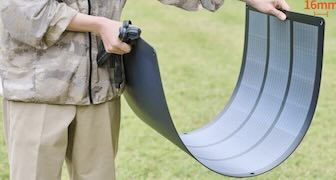Oct 30 (NHK) - A team of Japanese researchers says they have found that mammalian embryos develop normally in space under microgravity conditions.
The researchers, including Professor Wakayama Teruhiko of Yamanashi University and a team from the Japanese space agency JAXA, conducted an experiment on the International Space Station.
They sent frozen mouse embryos on board a rocket heading to the ISS in August 2021.
After the embryos were thawed and cultured by astronauts for four days, they investigated whether the embryos developed into blastocysts. A blastocyst consists of cells that develop into the fetus and the placenta.
The researchers found that 17 of 72 embryos, or 23.6 percent, developed into blastocysts under microgravity, while 19 of 61 embryos, or 31.1 percent, developed into blastocysts under artificially-created conditions where gravity was the same as that on Earth.
The researchers say gravity had no significant effect on the development of mammalian embryos.
They also say, in terms of DNA and genes, there were no differences between blastocysts cultured under microgravity and those cultured under artificial gravity conditions. ...continue reading















